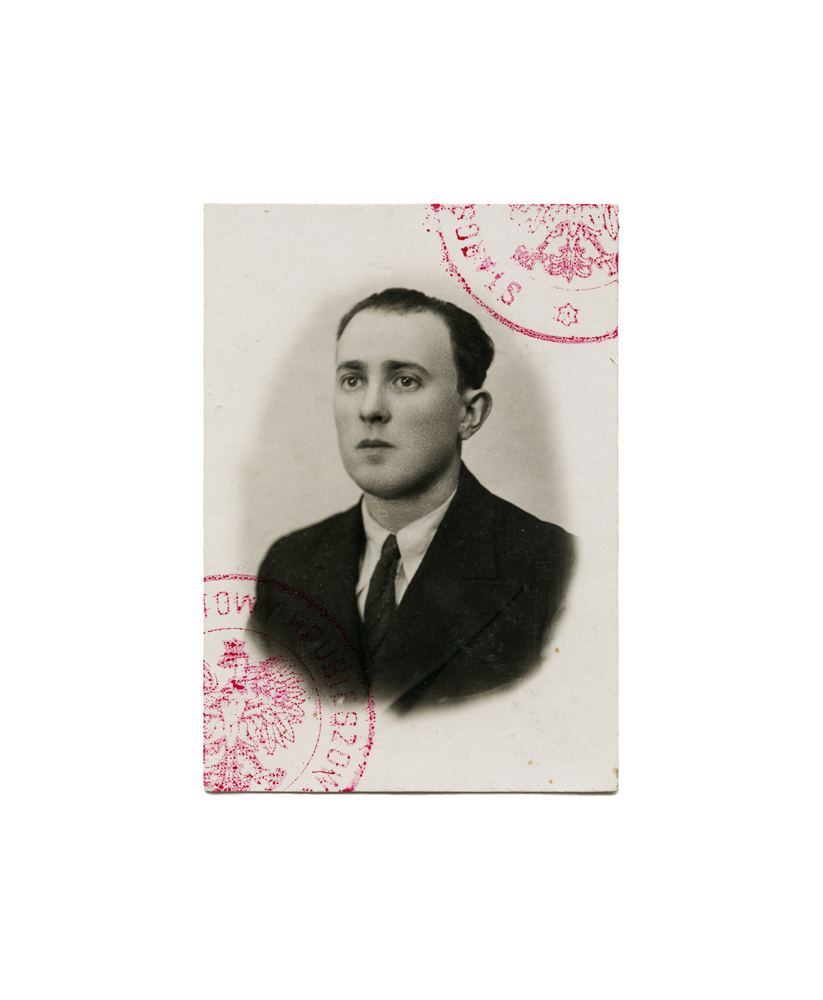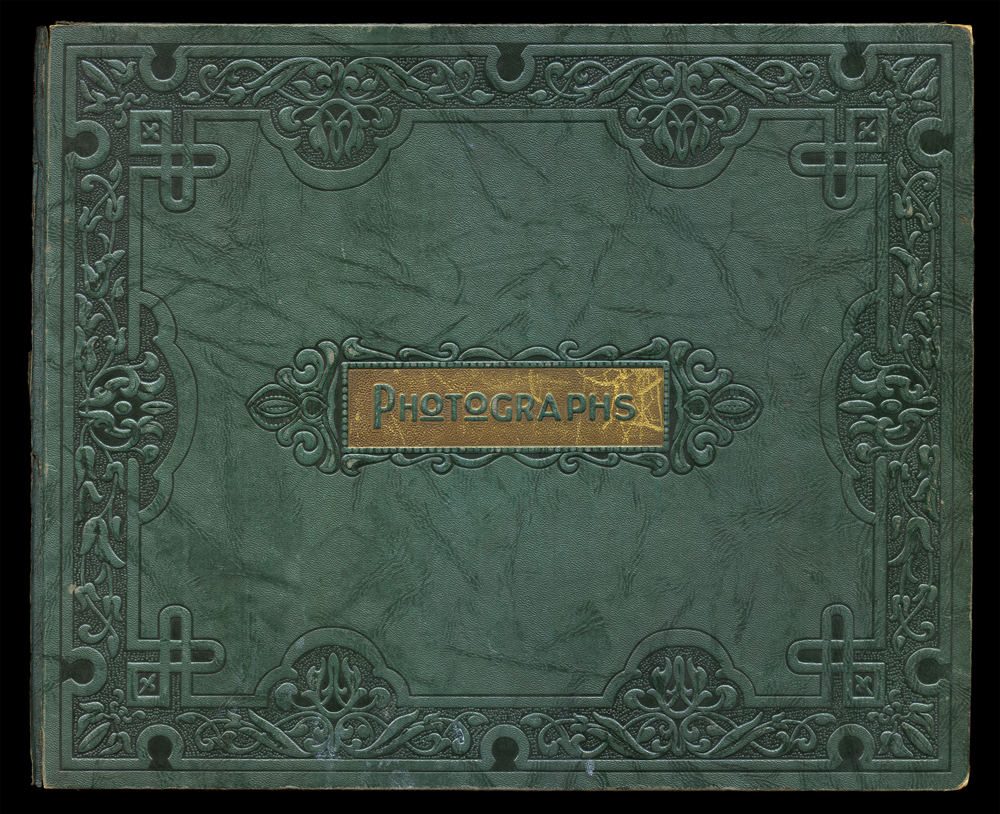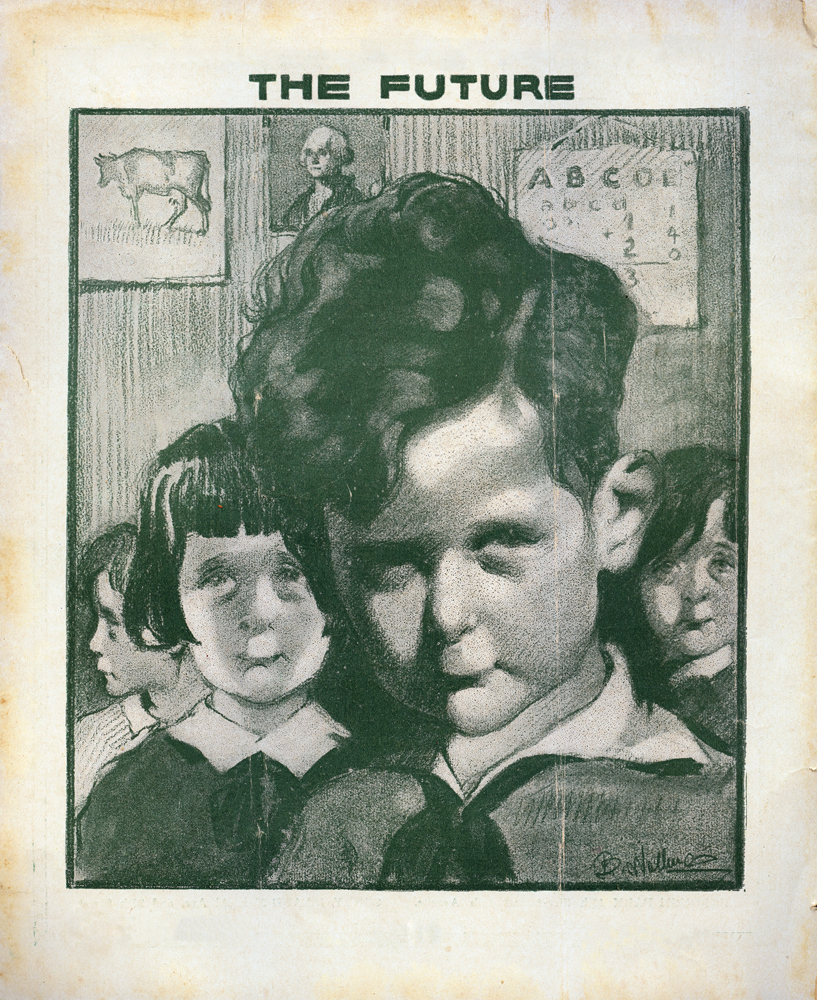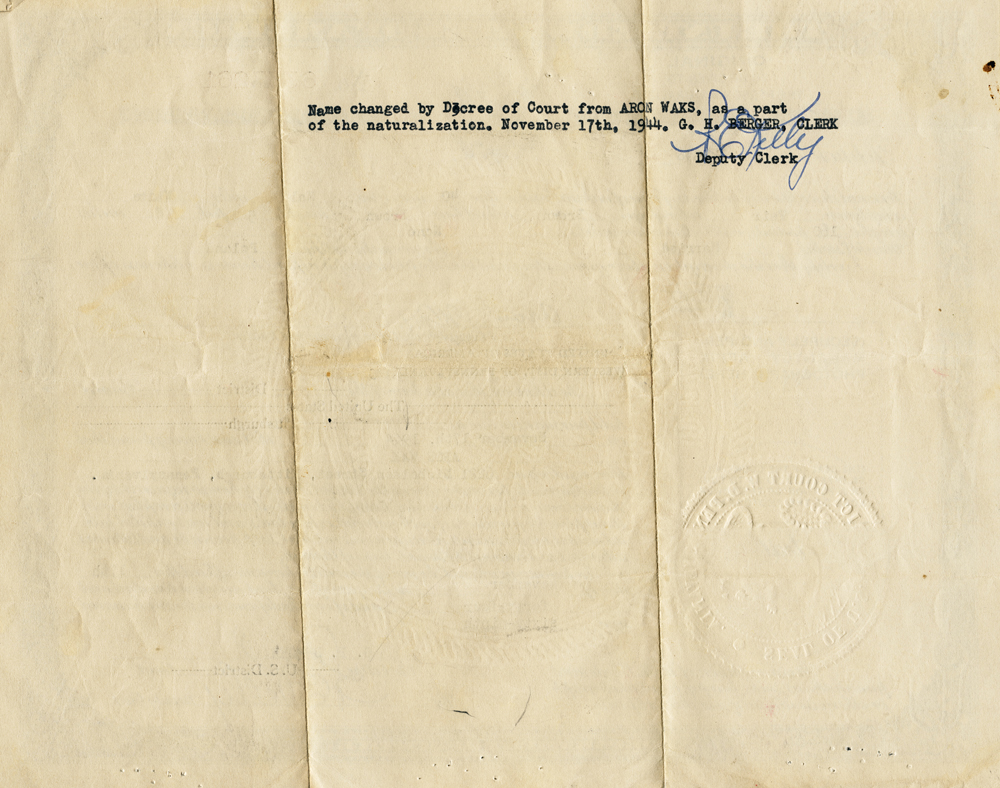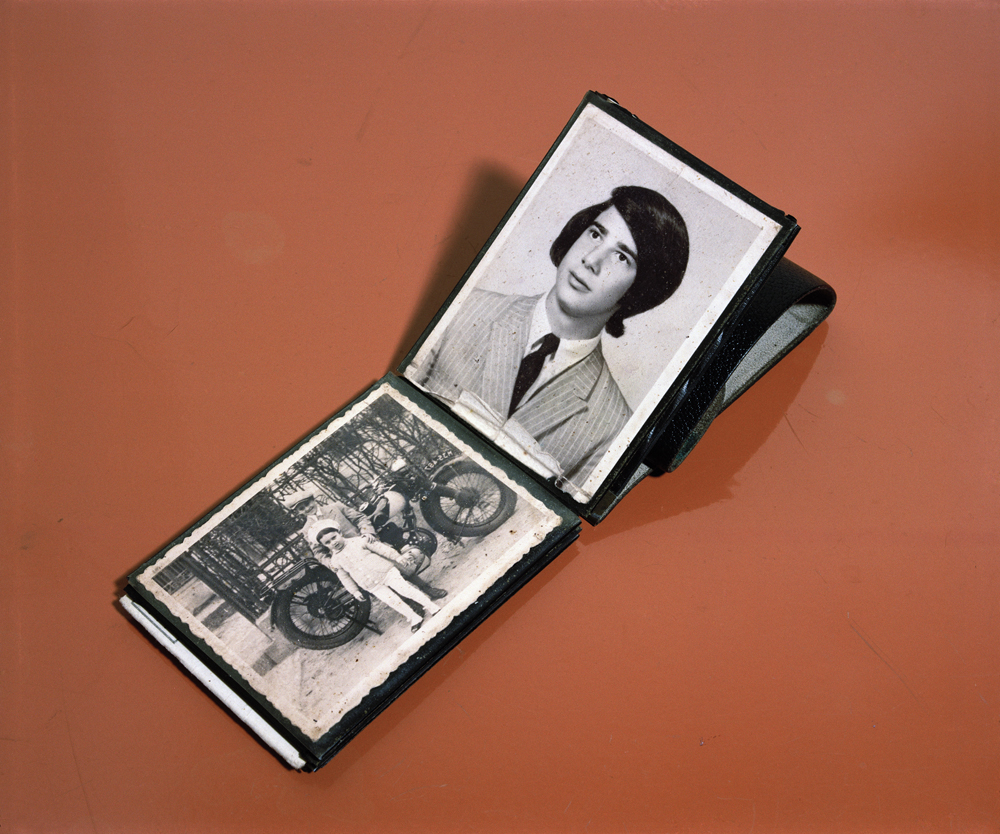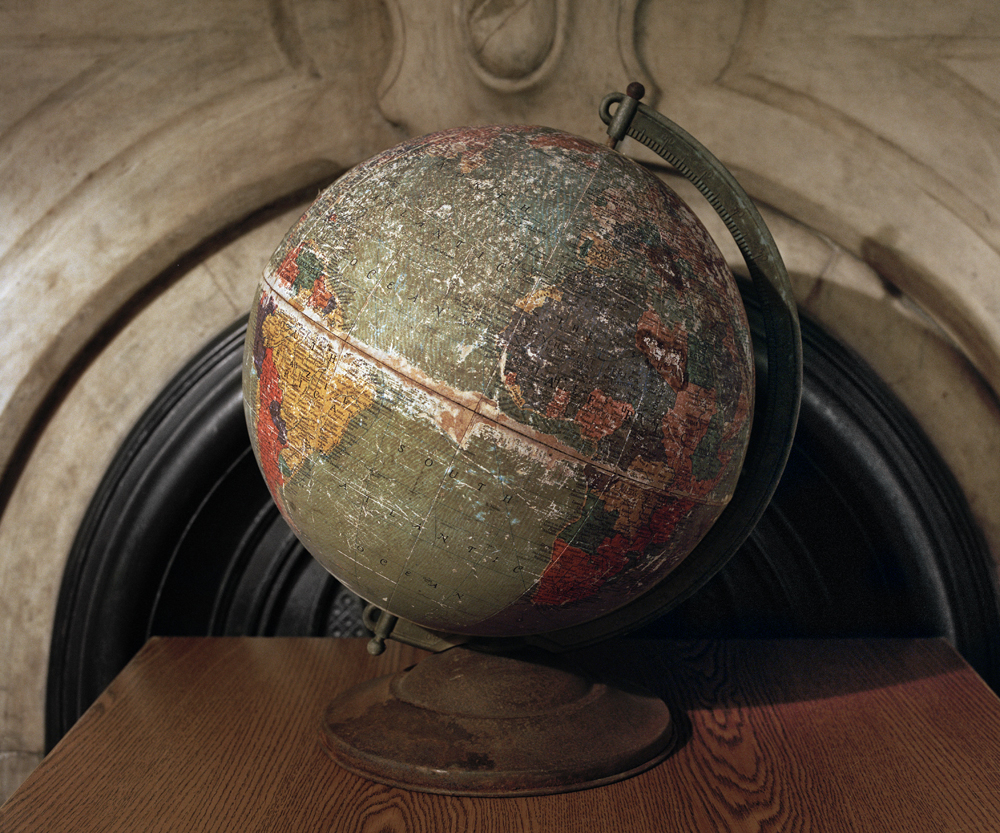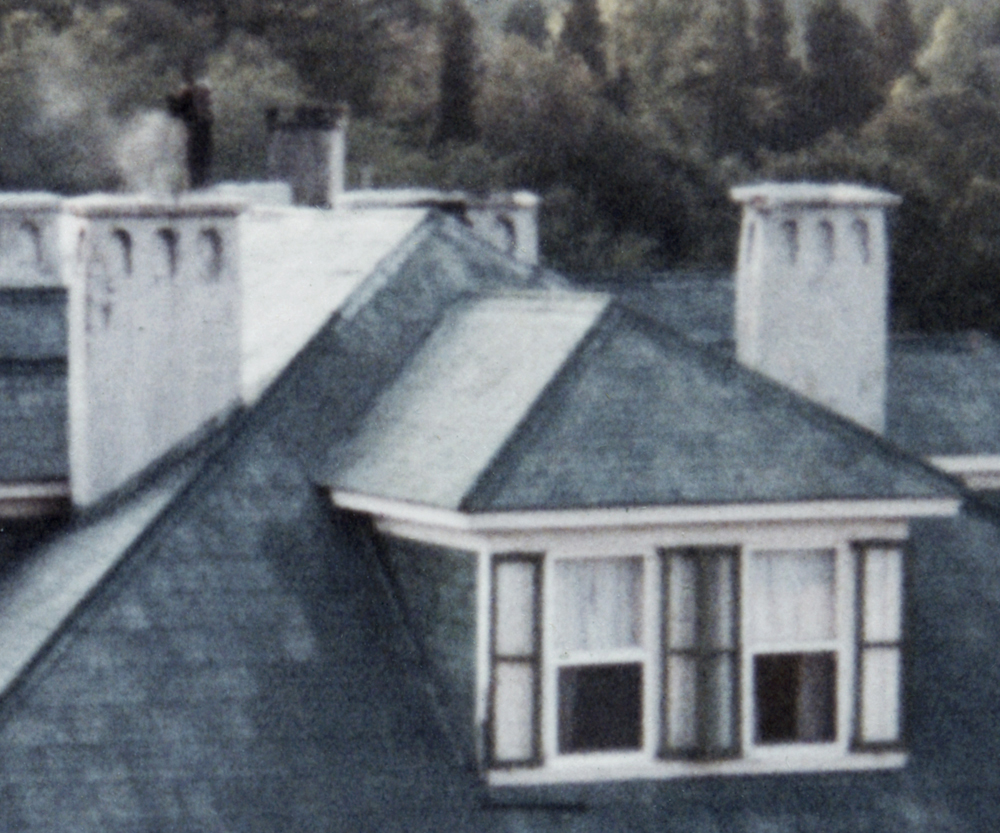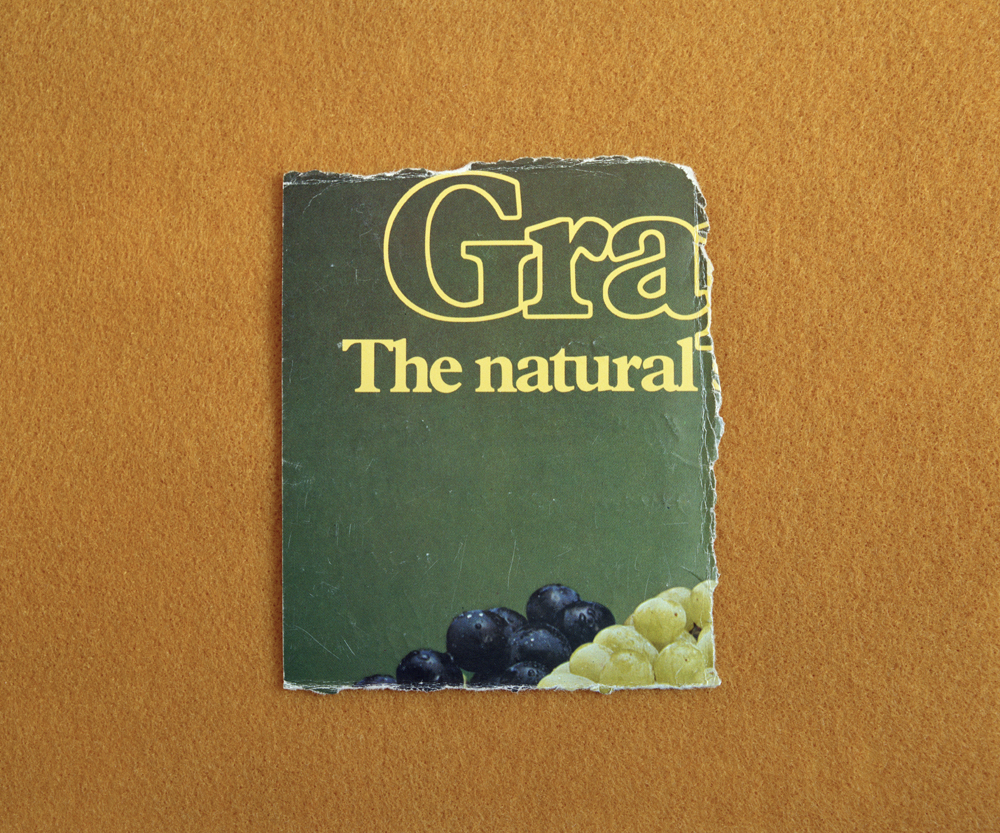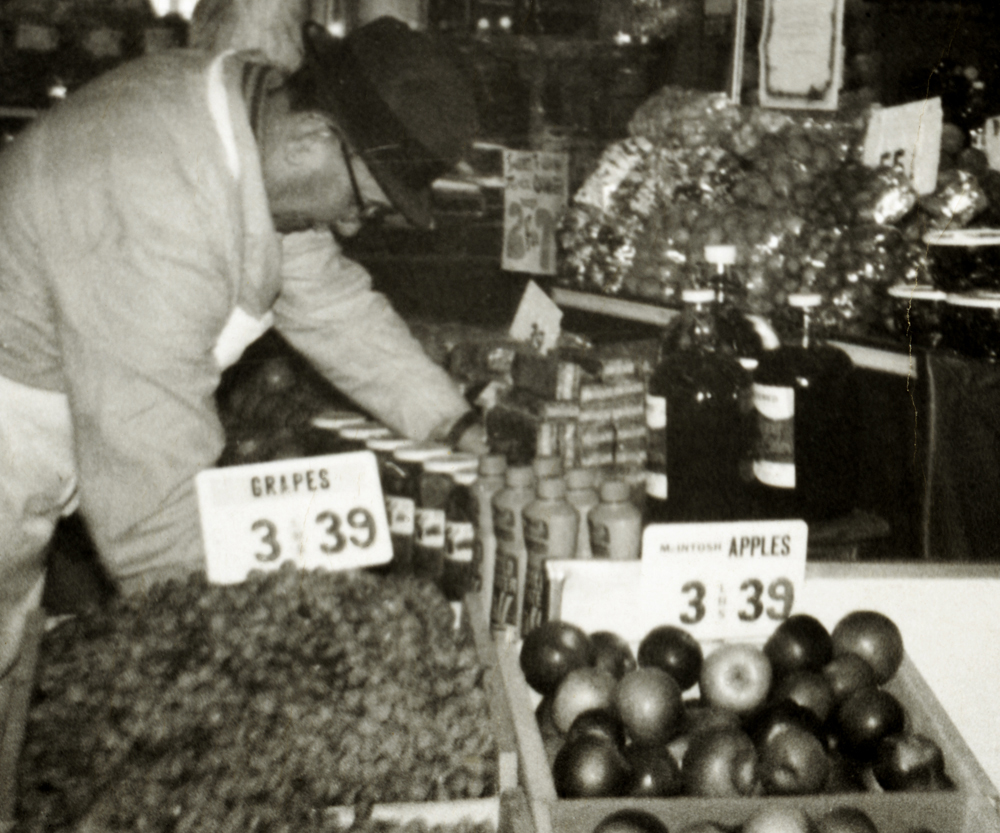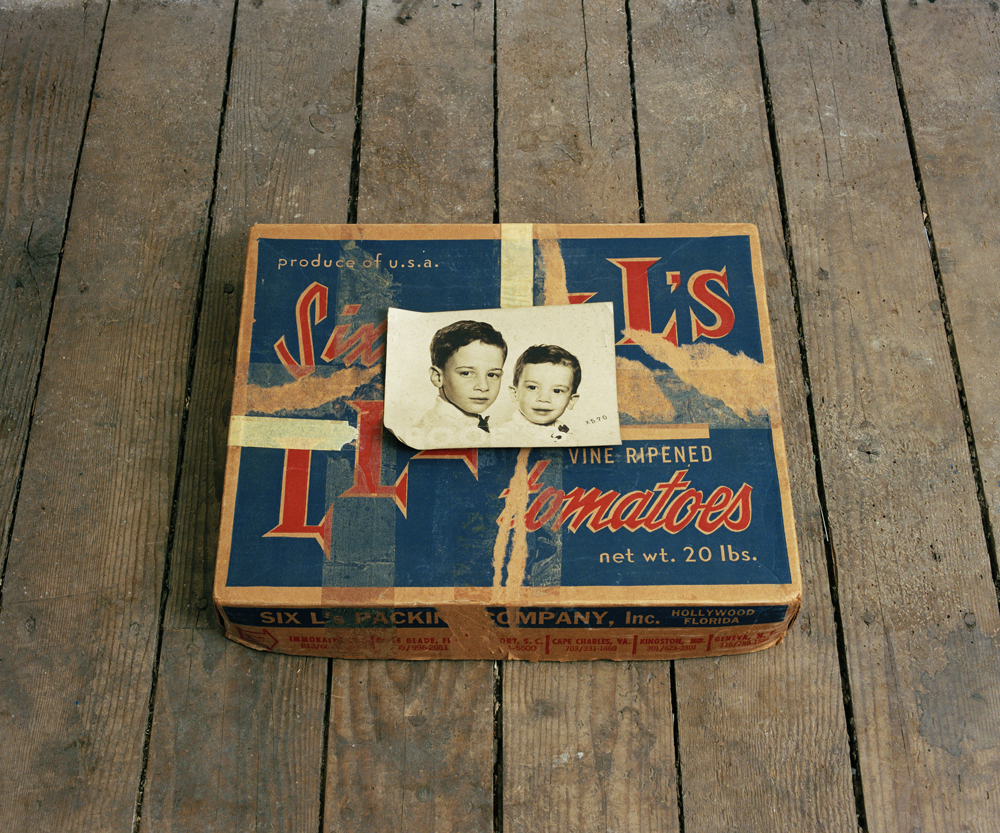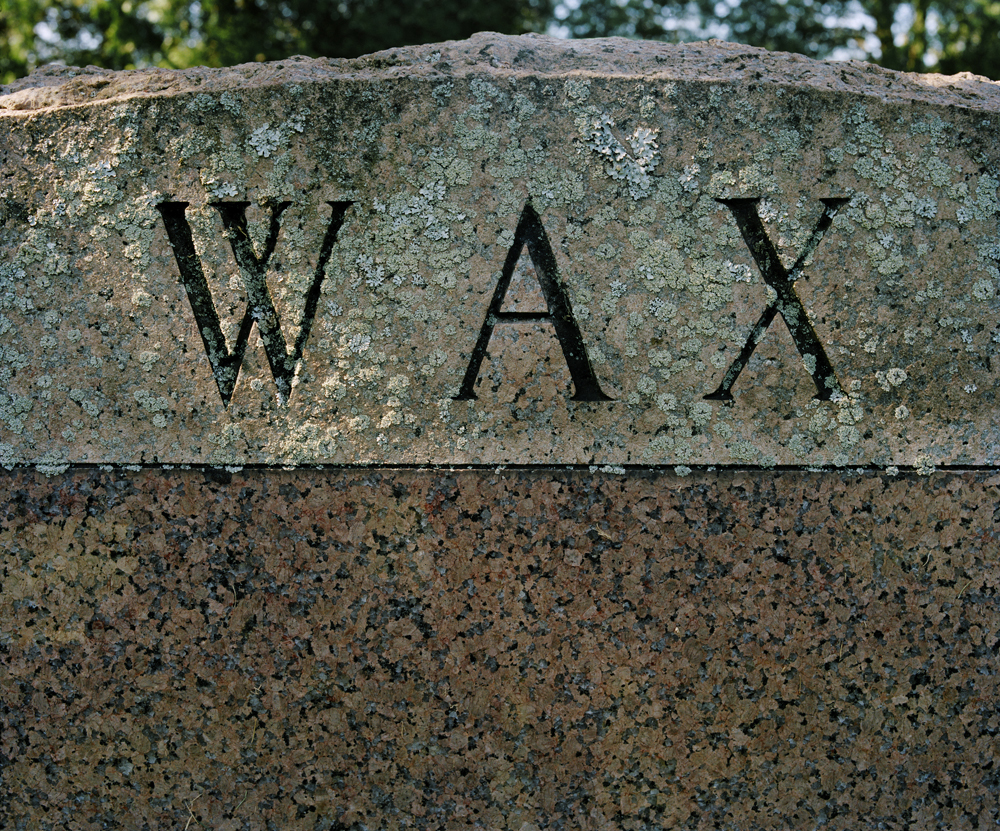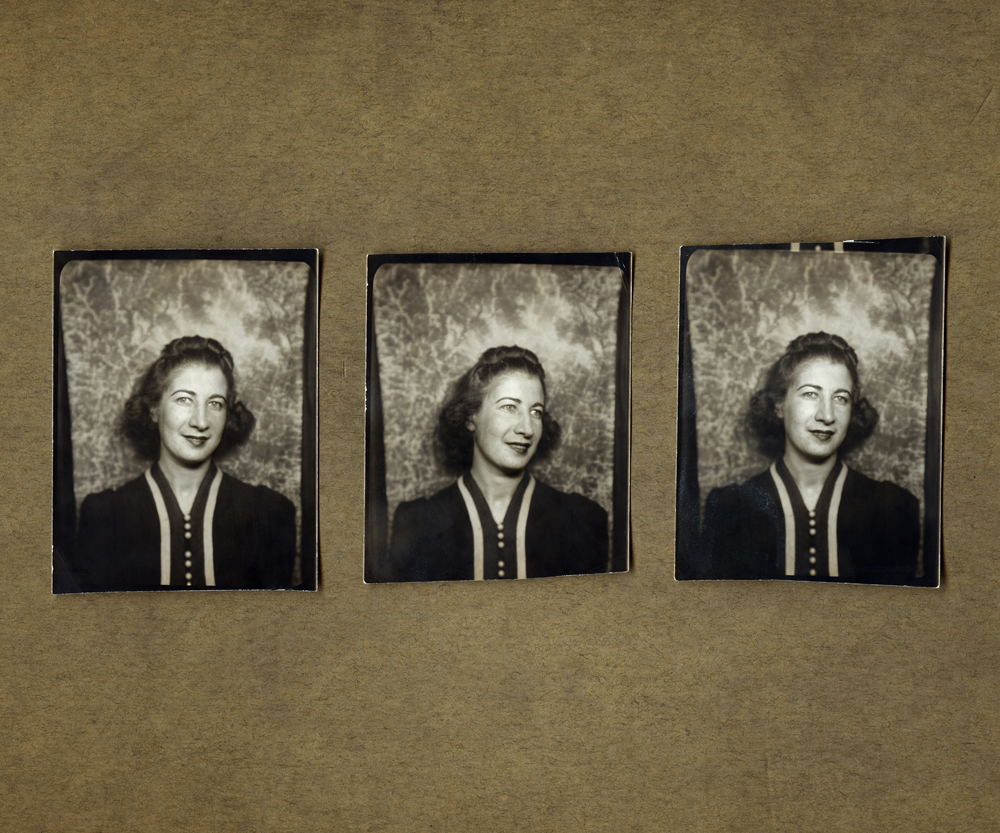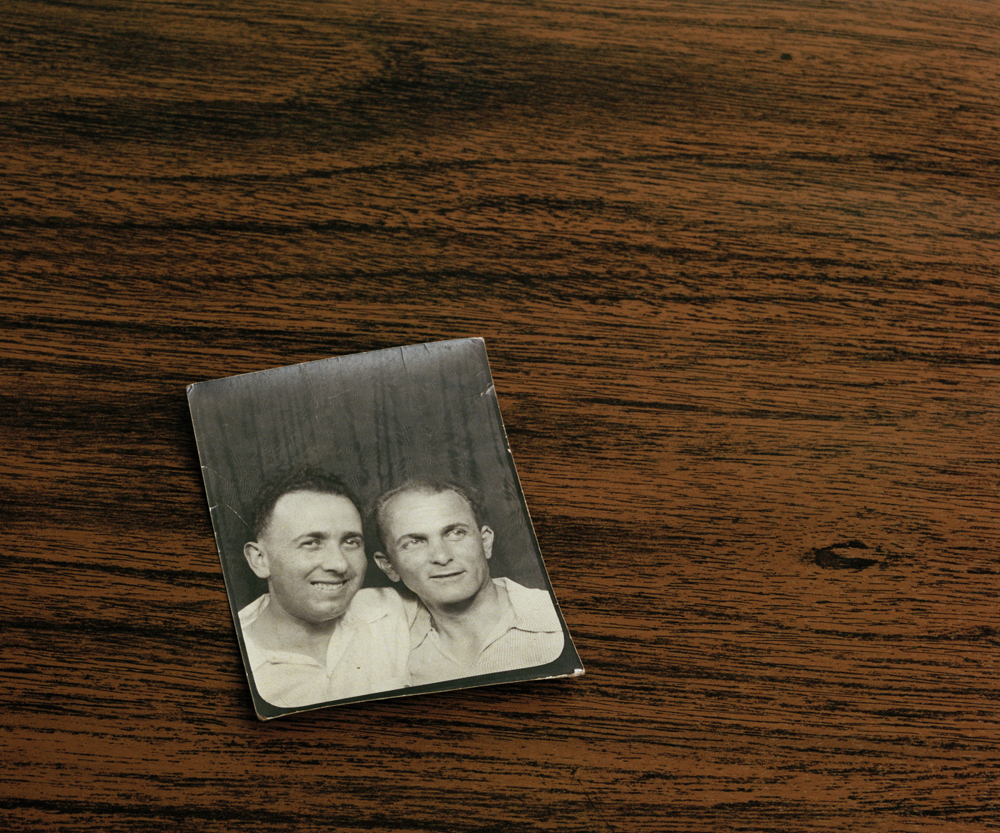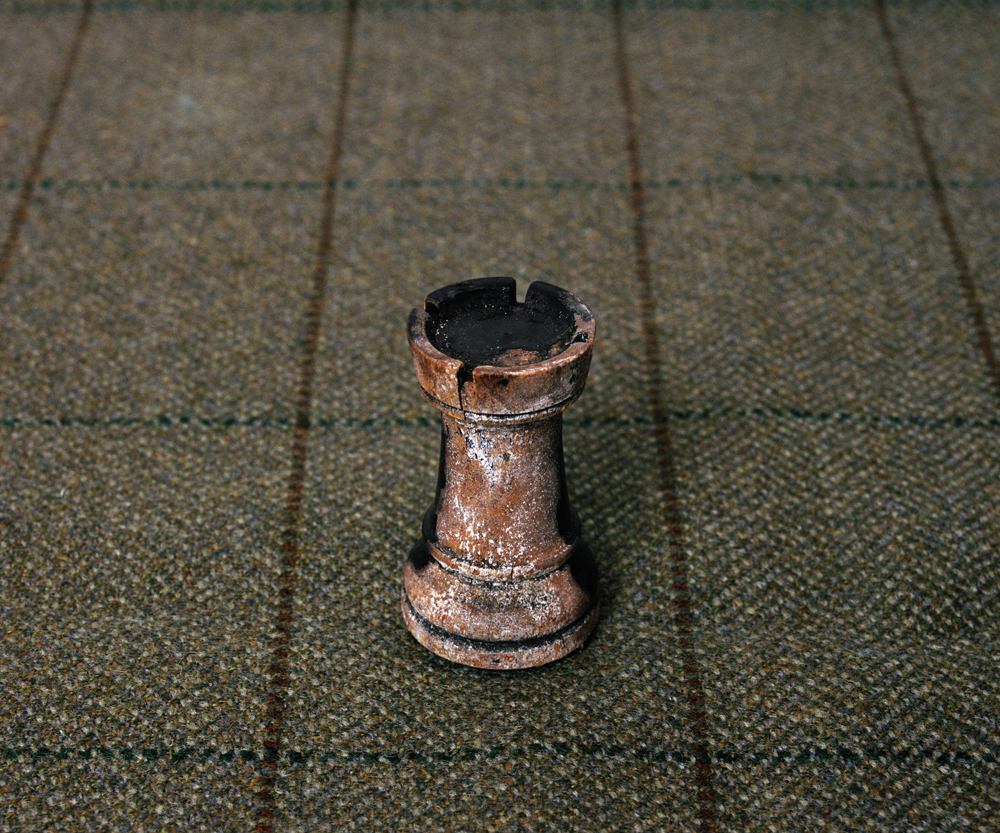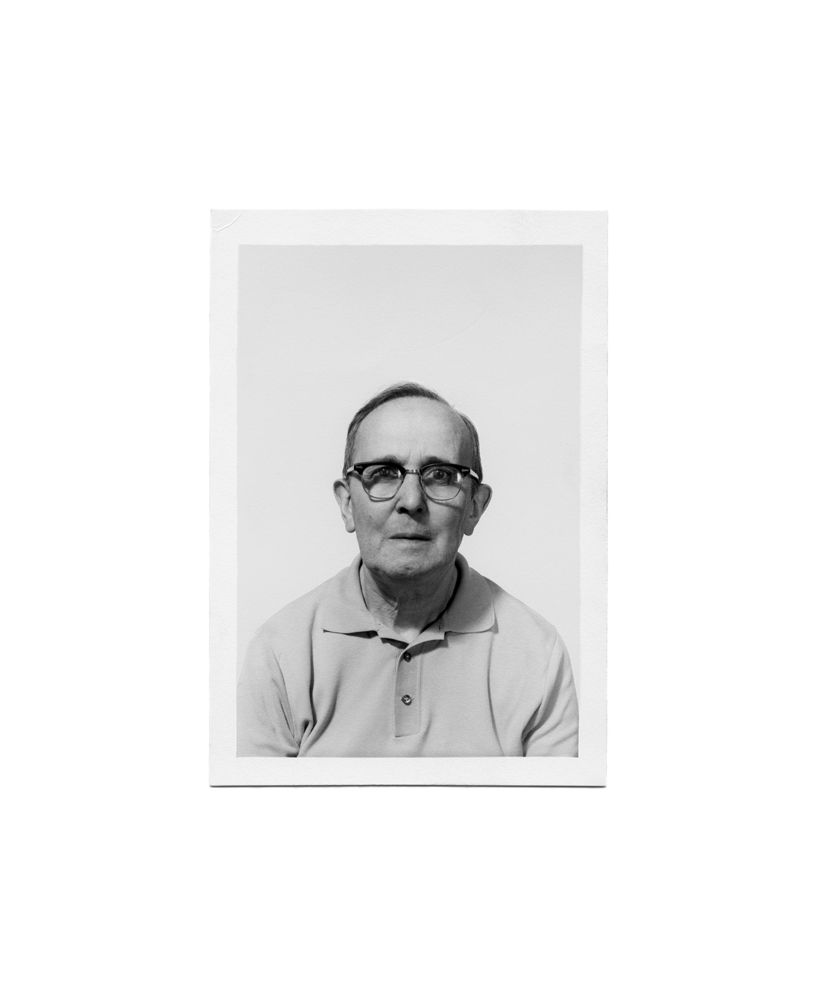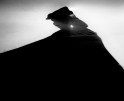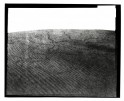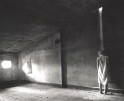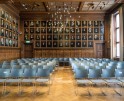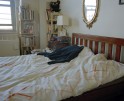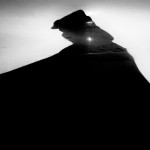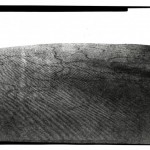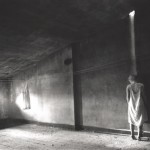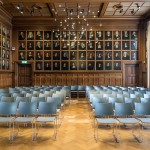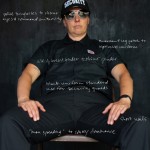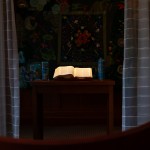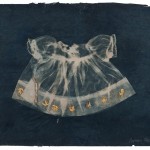Aaron Wax: Naturalization
Projects featured over the next several days were selected from our most recent call-for-submissions. I was able to interview each of these individuals to gain further insight into the bodies of work they shared. Today, we are looking at the series Naturalization, by Aaron Wax.
Naturalization
Naturalization is an exploration into the life of my grandfather. I create images from my grandfather’s saved objects, photographs, and documents. These images act as the framework for reconstructing his story. I also appropriate other materials to supplement my study. These objects act as a memory from another’s life. He was a Polish Jew, who moved to the United States before the Second World War with hopes to earn enough money to bring his wife and children to join him. Unfortunately, the War began and they were killed. Although he passed away before I was born, I have always felt close to his story. If not for his great loss I would not be alive. Due to the inconsistencies and limitations within my family’s memory I will never be able to create an accurate representation of my grandfather’s life, but I construct a reimagined narrative based on his past.
Daniel George: When and how did your interest in exploring your grandfather’s life begin?
Aaron Wax: I have been interested in my grandfather’s life for as long as I can remember. It is traditional for Jewish families to name a child after a deceased relative and keeping with this tradition I was named after my grandfather. Each time I asked about my name, I learned more about him. When my father would discuss my grandfather it was with a delicacy and emotional reverence that made me more curious about him. I learned that my grandfather immigrated to the United States from Hrubieszów Poland in 1938. He left behind his wife and children with the plan for them to join him once he was able to establish a new life and save enough money from the journey. However, less than a year later German troops entered Poland and in Hrubieszów the Nazi forces carried out a mass shooting of the Jewish citizens, in which my grandfather’s family was killed. After the war my grandfather remarried my grandmother and they had my father and his brother. My grandfather did not often speak of his life in Poland. It was only after my grandmother passed away in 1968 did he tell my father about his previous family. After his death in 1980 my father found a photograph in my grandfather’s wallet of his first two children in Poland. My grandfather was very private about his previous life and family in Poland, his loss had a deep impact on his relationship with my father. In many ways, to try and understand my grandfather I would have to first examine the loss that became so paramount to who he was.
DG: Why do you feel this was best accomplished through photography?
AW: I am fascinated with photography’s role in documenting the past. I love the role the family photo plays in helping me explore the lives of my ancestors. Through my own photography I am able to expand the images of these saved objects and personal photographs beyond the original content. For instance Portrait, which is simply a passport photograph of my grandfather, is printed at a size of 30 inches high. Even with the significant white border of the image the photograph is gigantic when compared to the original object. It gives this seemingly insignificant image much more importance as when printed at this enlarged size one can fully enter my grandfather’s gaze. We can discover the gesture of the stamp that was placed on the top right and bottom left of the photograph. On the bottom left stamp, we can even make out the name of my grandfather’s hometown, Hrubieszow. The new context of the image has a transformative nature. I hope that my photographs allow the viewer to feel the same sense of discovery I experience when exploring my family’s ephemera.
DG: What was this process of discovery like? Getting to know this person through photographs and objects?
AW: I act as a detective going through objects and photographs saved from my grandfather searching for hints to learn more about his life. When I went through my grandfather’s wallet I looked at every card and photograph in it. I felt an emotional connection to him when uncovering a photograph of my uncle as a teenager alongside a picture of his children in Poland. When I made a photograph of this scene to create a representation of two parts of his life, I felt a deep sadness thinking about how much he lost. This feeling was complex for me since if it was not for this loss my grandfather would not have remarried and I would never have been born. It is exciting to be able to peer into the life of my grandfather though what he left behind, but it can also be frustrating because I am limited in how much I can get to know without him around.
DG: You mention how you chose to reimagine the narrative on certain aspects of your grandfather’s life, due to inconsistencies in your family’s recollections of him. Why did you feel this was important, as opposed to leaving certain gaps unknown?
AW: I have always been constructing a unique narrative for my grandfather’s life. The stories I hear about his life are always limited and the archive of ephemera can only bring me so close to his life. There was a book made by the Jewish survivors of my grandfather’s town in Poland after the war ended. This book contains photographs from the town as well as stories of the citizens. Although it does not contain a first hand story from my grandfather it allows for insight into his life before America. It was important for me to allow these moments to influence a new reimagined narrative rather then leaving gaps in his story because it reflects the process of discovery when exploring the unknown aspects of his life.
DG: What value do you see in sharing this history with others?
AW: Originally I began this project as a personal exploration and saw most of the significance in presentation related to the general topics surrounding family archives, but the relevance of sharing this project with others has become even more important to me recently. With increases in anti-Semitism in the United States, it is important to remember our history. My grandfather immigrated here with hopes to protect his children from the anti-Semitic violence in Europe. Now his grandchildren live in a country where there have been two shooting at synagogues within the past year and anti-Semitic rhetoric has drastically increased. The shooting in October at Tree of Life Synagogue in Pittsburgh was significantly poignant to me because it was within the community where my grandfather sought refuge from persecution. We need to remember the lives that were lost to help prevent the loss of future lives. Although this deep loss and trauma is an important aspect of the project, the series also follows my grandfather’s optimism as he starts another family and his significant sacrifices so that his children could have a better life than his own. My grandfather’s personal dream can have a broad appeal and show us the importance of ensuring we allow for a safer world for our next generations.
Aaron Wax is an artist and photographer living and working in Brooklyn, NY. He earned his MFA in Photography, Video, and Related Media from the School of Visual Arts in New York, NY in 2014. In 2018 he was an artist in residence at the Wassaic Project in Wassaic, NY. His work been exhibited throughout the United States as well as featured in various online and print arts publications. Most recently he has been exhibited at Flower City Arts Center in Rochester, NY, Conmodo64 in Turin Italy, The Vermont Center of Photography in Brattleboro, VT, Target Gallery in Alexandria, VA, and the Rockaway Artists Alliance in Queens, NY. His recent work is concerned with family stories and memories. Wax explores topics of oral histories and the collection as an extension of memory.
Posts on Lenscratch may not be reproduced without the permission of the Lenscratch staff and the photographer.
Recommended
-
Jonathan Silbert: InsightsFebruary 19th, 2026
-
Olga Fried: Intangible EncountersFebruary 18th, 2026
-
Anne McDonald: Self-PortraitsFebruary 17th, 2026
-
Review Santa Fe: Leslee Broersma: Tracing AcademiaFebruary 11th, 2026
-
Review Santa Fe: Ilana Grollman: Just Know That I Love YouFebruary 10th, 2026

